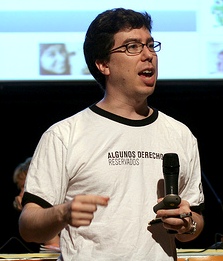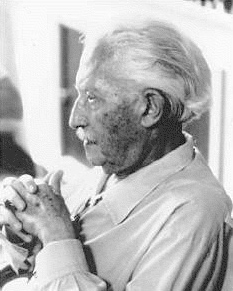Related Research Articles

Digital art refers to any artistic work or practice that uses digital technology as part of the creative or presentation process. It can also refer to computational art that uses and engages with digital media. Since the 1960s, various names have been used to describe digital art, including computer art, electronic art, multimedia art, and new media art.

Jonathan L. Zittrain is an American professor of Internet law and the George Bemis Professor of International Law at Harvard Law School. He is also a professor at the Harvard Kennedy School, a professor of computer science at the Harvard School of Engineering and Applied Sciences, and co-founder and director of the Berkman Klein Center for Internet & Society. Previously, Zittrain was Professor of Internet Governance and Regulation at the Oxford Internet Institute of the University of Oxford and visiting professor at the New York University School of Law and Stanford Law School. He is the author of The Future of the Internet and How to Stop It as well as co-editor of the books, Access Denied, Access Controlled, and Access Contested.

Generative art is post-conceptual art that has been created with the use of an autonomous system. An autonomous system in this context is generally one that is non-human and can independently determine features of an artwork that would otherwise require decisions made directly by the artist. In some cases the human creator may claim that the generative system represents their own artistic idea, and in others that the system takes on the role of the creator.
Computer art is art in which computers play a role in the production or display of the artwork. Such art can be an image, sound, animation, video, CD-ROM, DVD-ROM, video game, website, algorithm, performance or gallery installation. Many traditional disciplines are now integrating digital technologies and, as a result, the lines between traditional works of art and new media works created using computers has been blurred. For instance, an artist may combine traditional painting with algorithm art and other digital techniques. As a result, defining computer art by its end product can thus be difficult. Computer art is bound to change over time since changes in technology and software directly affect what is possible.
Generative music is a term popularized by Brian Eno to describe music that is ever-different and changing, and that is created by a system.

Generative science is an area of research that explores the natural world and its complex behaviours. It explores ways "to generate apparently unanticipated and infinite behaviour based on deterministic and finite rules and parameters reproducing or resembling the behavior of natural and social phenomena". By modelling such interactions, it can suggest that properties exist in the system that had not been noticed in the real world situation. An example field of study is how unintended consequences arise in social processes.
In video games, artificial intelligence (AI) is used to generate responsive, adaptive or intelligent behaviors primarily in non-playable characters (NPCs) similar to human-like intelligence. Artificial intelligence has been an integral part of video games since their inception in the 1948, first seen in the game Nim. AI in video games is a distinct subfield and differs from academic AI. It serves to improve the game-player experience rather than machine learning or decision making. During the golden age of arcade video games the idea of AI opponents was largely popularized in the form of graduated difficulty levels, distinct movement patterns, and in-game events dependent on the player's input. Modern games often implement existing techniques such as pathfinding and decision trees to guide the actions of NPCs. AI is often used in mechanisms which are not immediately visible to the user, such as data mining and procedural-content generation. One of the most infamous examples of this NPC technology and gradual difficulty levels can be found in the game Punch-Out!!.
Commons-based peer production (CBPP) is a term coined by Harvard Law School professor Yochai Benkler. It describes a model of socio-economic production in which large numbers of people work cooperatively; usually over the Internet. Commons-based projects generally have less rigid hierarchical structures than those under more traditional business models.

In computing, procedural generation is a method of creating data algorithmically as opposed to manually, typically through a combination of human-generated content and algorithms coupled with computer-generated randomness and processing power. In computer graphics, it is commonly used to create textures and 3D models. In video games, it is used to automatically create large amounts of content in a game. Depending on the implementation, advantages of procedural generation can include smaller file sizes, larger amounts of content, and randomness for less predictable gameplay.
The OpenNet Initiative (ONI) was a joint project whose goal was to monitor and report on internet filtering and surveillance practices by nations. Started in 2002, the project employed a number of technical means, as well as an international network of investigators, to determine the extent and nature of government-run internet filtering programs. Participating academic institutions included the Citizen Lab at the Munk Centre for International Studies, University of Toronto; Berkman Center for Internet & Society at Harvard Law School; the Oxford Internet Institute (OII) at University of Oxford; and, The SecDev Group, which took over from the Advanced Network Research Group at the Cambridge Security Programme, University of Cambridge.
Mass collaboration is a form of collective action that occurs when large numbers of people work independently on a single project, often modular in its nature. Such projects typically take place on the internet using social software and computer-supported collaboration tools such as wiki technologies, which provide a potentially infinite hypertextual substrate within which the collaboration may be situated. Open source software such as Linux was developed via mass collaboration.

Algorithmic art or algorithm art is art, mostly visual art, in which the design is generated by an algorithm. Algorithmic artists are sometimes called algorists.
Generative may refer to:
Artificial imagination is a narrow subcomponent of artificial general intelligence which generates, simulates, and facilitates real or possible fiction models to create predictions, inventions, or conscious experiences.

Computational creativity is a multidisciplinary endeavour that is located at the intersection of the fields of artificial intelligence, cognitive psychology, philosophy, and the arts.

The term generativity was coined by the psychoanalyst Erik Erikson in 1950 to denote "a concern for establishing and guiding the next generation." He first used the term while defining the Care stage in his theory of the stages of psychosocial development.

Digital architecture refers to aspects of architecture that feature digital technologies or considers digital platforms as online spaces. The emerging field of digital architectures therefore applies to both classic architecture as well as the emerging study of social media technologies.

Generative design is an iterative design process that uses software to generate outputs that fulfill a set of constraints iteratively adjusted by a designer. Whether a human, test program, or artificial intelligence, the designer algorithmically or manually refines the feasible region of the program's inputs and outputs with each iteration to fulfill evolving design requirements. By employing computing power to evaluate more design permutations than a human alone is capable of, the process is capable of producing an optimal design that mimics nature's evolutionary approach to design through genetic variation and selection. The output can be images, sounds, architectural models, animation, and much more. It is therefore a fast method of exploring design possibilities that is used in various design fields such as art, architecture, communication design, and product design.

Generative artificial intelligence is artificial intelligence capable of generating text, images, videos, or other data using generative models, often in response to prompts. Generative AI models learn the patterns and structure of their input training data and then generate new data that has similar characteristics.
References
- 1 2 Zittrain, Jonathan (May 2006). "The Generative Internet". Harvard Law Review. 119 (7): 1974–2040. JSTOR 4093608.
- ↑ Robin Teigland; Dominic Power (25 March 2013). The Immersive Internet: Reflections on the Entangling of the Virtual with Society, Politics and the Economy. Palgrave Macmillan. p. 205. ISBN 978-1-137-28302-3.
- ↑ Zittrain, Jonathan (Jonathan L.), 1969- (2008). The future of the Internet and how to stop it. New Haven [Conn.]: Yale University Press. ISBN 978-0-300-14473-4. OCLC 289029003.
{{cite book}}: CS1 maint: multiple names: authors list (link) CS1 maint: numeric names: authors list (link)